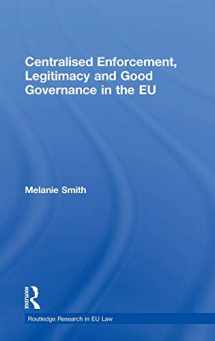
Centralised Enforcement, Legitimacy and Good Governance in the EU (Routledge Research in EU Law)
Book details
Summary
Description
Article 226 EC is the central mechanism of enforcement in the EC Treaty, and has remained unchanged since the original Treaty of Rome. It provides the European Commission, as guardian of the Treaty, with a broad power of policing Member States’ conduct. Article 226 has been traditionally characterised as an arena of secretive negotiation focused on the sole function of effective enforcement. This study seeks to move beyond this approach by characterising Article 226 as a multi-functional mechanism within the Treaty. It does this by examining the central mechanism of enforcement through the normative lenses of legitimacy, good administration and good governance.
Centralised Enforcement, Legitimacy and Good Governance in the EU is interdisciplinary in nature, examining law in its political context. It focuses on how the institutions interact and react to competing policy pressures, and explores the tensions that lie at the heart of legitimacy in the actions of public actors by engaging with concepts such as democracy, legitimacy and good administration.
Scholars and policy-makers whose work explores Article 226 will find this work especially relevant. It will also appeal to those who are interested in enforcement and regulation in the international/EU arena, as well as those whose work considers concepts such as good governance, legitimacy, and accountability in the EU. It is also relevant to scholars engaged in the study of institutions and processes of interaction and change.


We would LOVE it if you could help us and other readers by reviewing the book
Book review



